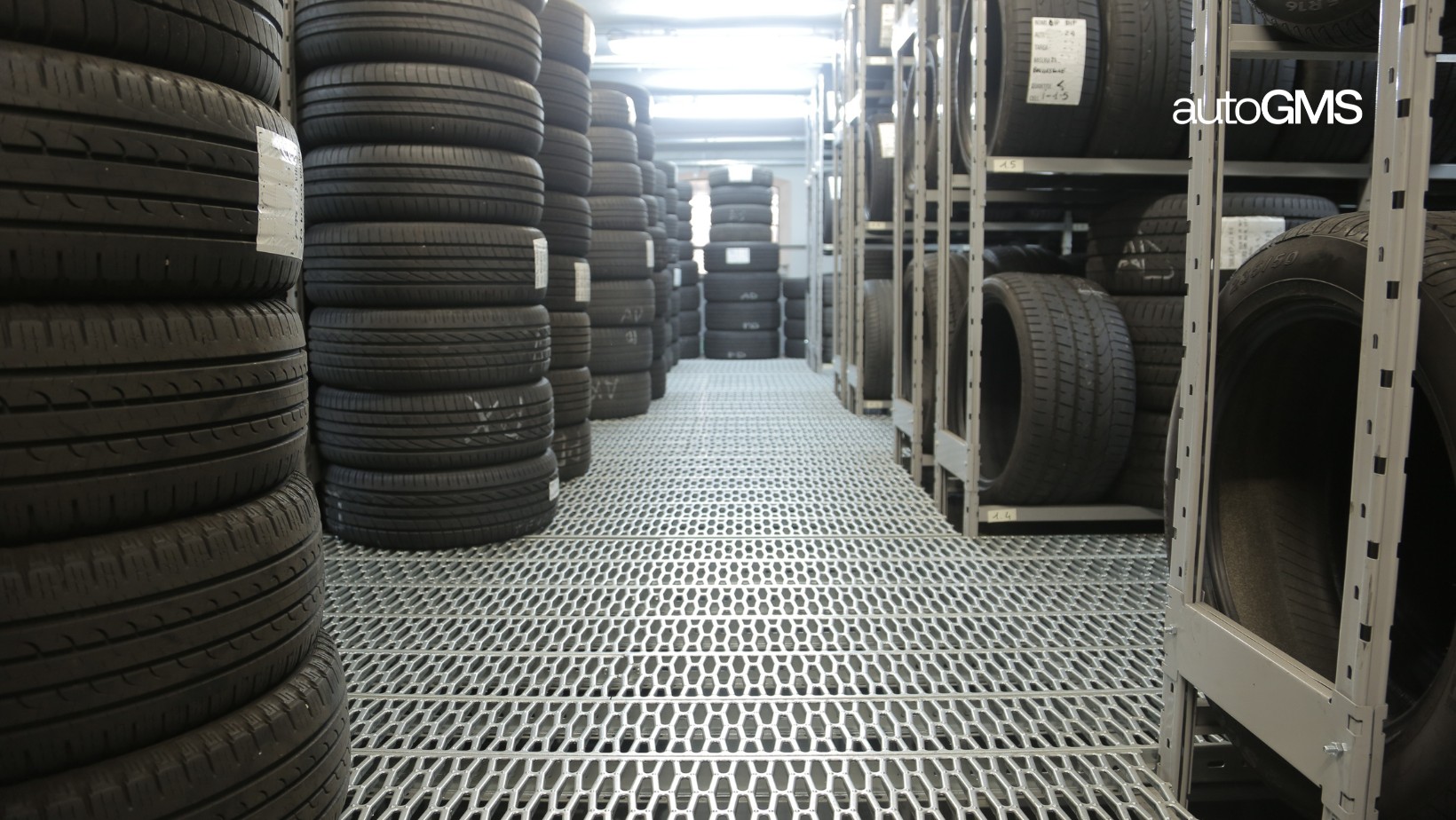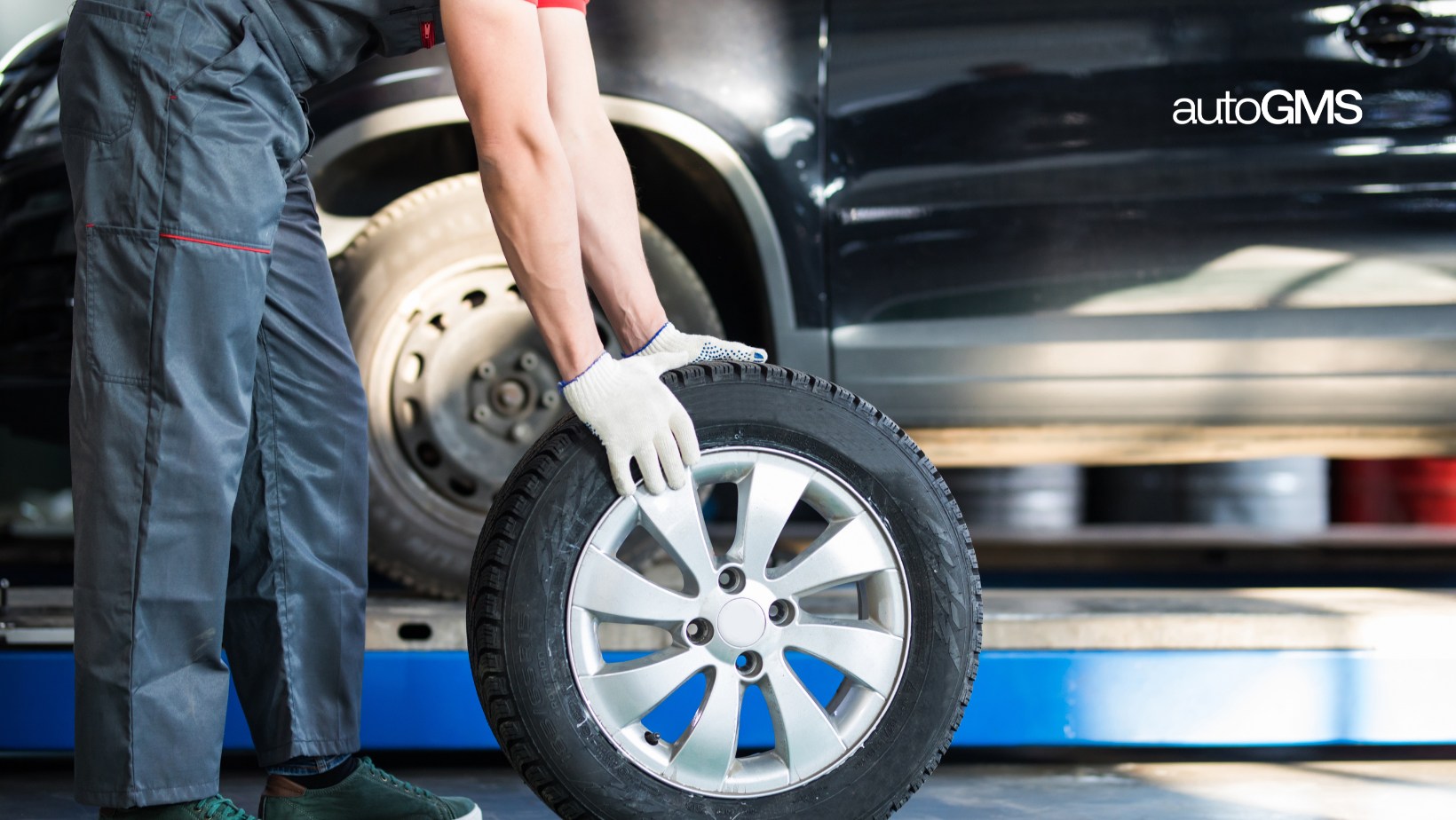Open a Tire Shop in 2025: Costs & Checklist
Break down start‑up costs, tools, and permits needed to launch a tyre shop this year, plus pro tips to stay cash‑flow positive.

Starting a tire shop in 2025 can be a smart move, with consistent demand and strong profit potential. But success depends on understanding your startup costs, equipment needs, and daily operations.
This guide breaks down the key steps to open a tire shop, from budgeting and setup to long-term profitability, plus why using a garage management system can streamline everything.
Initial Costs to Start a Tire Shop
Costs of opening a tire shop involves several upfront spendings. Knowing what to expect helps you plan realistically and avoid surprises down the line.
1. Rent or Building Costs
You’ll need a commercial space with room for equipment, storage, and customer access. Depending on your location, expect to pay $1,500–$5,000 per month for rent. If buying, costs vary widely based on size and zoning.
2. Business Registration and Licensing
Registering your business and obtaining the right permits can cost $500–$1,500. Some areas may require special licenses for tire disposal or auto repair work.
3. Insurance
You’ll need general liability, workers' comp, and possibly garage liability insurance. Budget around $2,000–$6,000 per year, depending on coverage and business size.
4. Utilities and Setup
Initial utility setup (electricity, water, internet) may run $1,000–$2,000, with monthly costs around $300–$700.
These startup costs are just the foundation. Next, we’ll cover the essential equipment every tire shop needs to operate efficiently.
Tire Shop Equipment Essentials
Equipping your shop with the right tools is key to efficient service and customer satisfaction. Here are the must-have items for any tire store setup:
1. Tire Changing Equipment
A quality tire changer is essential. Expect to invest $2,000–$8,000, depending on whether you choose manual or fully automatic models.
2. Wheel Balancer
To ensure smooth rides, you’ll need a wheel balancing machine, typically priced between $1,500–$5,000.
3. Air Compressor
Most air tools and inflators require a reliable air compressor, costing around $1,000–$3,000.
4. Vehicle Lift
A hydraulic lift helps you safely access wheels and undercarriages. Prices range from $2,500–$10,000, depending on lift type.
5. Tire Racks and Storage
Keeping inventory organized is crucial. Racks and shelving systems may cost $500–$2,000, depending on your volume.
Investing in durable, high-performing tools ensures smoother operations and fewer breakdowns in the long run.

Inventory & Supply Costs
Tires are your main product, so stocking the right mix is essential. Your tire shop startup costs will vary depending on inventory size and your supplier relationships.
1. Initial Tire Inventory
Most shops start with $10,000–$30,000 worth of inventory. This should include a range of tire sizes, brands, and types (all-season, winter, performance). Partnering with distributors can help you access better bulk pricing.
2. Accessories & Add-ons
You’ll also need valve stems, patches, repair kits, wheel weights, and TPMS sensors. Expect to spend an additional $2,000–$5,000 for accessories and consumables.
3. Vendor Relationships
Building partnerships with tire brands or wholesalers can lead to discounts, financing options, and consistent supply, especially valuable for commercial tire shop setups.
Managing inventory efficiently also helps reduce waste and increase profit margins, something that a smart garage management system can help automate.
Staffing & Training Needs
Hiring skilled staff is key to keeping your shop running efficiently and safely. Whether you're launching a small operation or a full-service tire center, you’ll need the right team in place.
1. Mechanics & Tire Technicians
Most tire shops start with 2–4 technicians. Depending on experience and region, wages range from $15 to $30 per hour. For a full-time team, plan for $60,000–$120,000 per year in payroll.
2. Front Desk or Shop Manager
Someone needs to handle bookings, customer service, and workflow. A shop manager or front desk rep may cost $30,000–$50,000 per year, depending on experience.
3. Training & Certification
While not always required, certifications (like from the Tire Industry Association) add professionalism and build trust. Training may cost $500–$2,000 per employee, but pays off in better service quality.
Using digital tools like a garage management system helps you track technician hours, assign jobs, and reduce chaos in the workflow.
Marketing & Branding Setup
Getting your tire shop noticed is just as important as having the right tools. A strong brand and smart local marketing can drive steady traffic from day one.
1. Logo, Branding & Signage
A clean logo, exterior signage, and shop branding build credibility. Design and signage costs can range from $1,000–$5,000 depending on materials and size.
2. Website & Online Presence
Most customers will look you up online first. A professional website with booking capability may cost $500–$2,000. Make sure it’s mobile-friendly and optimized for local SEO.
3. Local Advertising & Social Media
Use Google Business Profile, local Facebook groups, and paid ads to attract nearby drivers. Set aside $300–$1,000/month for local advertising, especially in the early months.
4. Reviews & Word of Mouth
Encourage satisfied customers to leave reviews on Google and Yelp. Strong online ratings can drive new traffic consistently.
Marketing gets easier when your operations are organized, especially when using a platform like MyAutoGMS to manage customer data and track service history.
How Much Does a Tire Shop Make a Month?
One of the most common questions for new owners is: How much does a tire shop make a month? The answer depends on shop size, location, and services offered, but here’s a general idea:
Small to Medium Shops
A small neighborhood shop may earn $10,000–$30,000/month in revenue. After expenses (rent, payroll, supplies), profits might range from $3,000–$10,000/month.
Full-Service Tire Centers
Larger shops with alignments, rotations, and diagnostics can earn $50,000–$100,000/month or more. Profit margins tend to improve with scale and service variety.
Key Revenue Drivers:
- Tire sales (new, used, seasonal)
- Mounting and balancing
- Alignments and rotations
- Add-on services (oil changes, inspections)
Effective scheduling, smart inventory control, and customer retention all impact monthly earnings, which is why more tire businesses turn to garage management software to streamline operations and maximize profit.
Are Tire Shops Profitable?
Yes, tire shops are profitable when managed well. Tires are a recurring need, and with the right pricing strategy, margins can be strong.
Average Profit Margin
Typical tire business profit margins range from 15% to 35%, depending on overhead and upselling services. Used tires and add-ons (like alignments and rotations) often have higher margins than new tire sales alone.
What Affects Profitability?
- Volume of customers
- Service variety (offering repairs boosts revenue)
- Supplier pricing and bulk deals
- Efficient operations (minimizing waste and downtime)
- Smart inventory management The most profitable shops use tools like garage management systems to reduce admin work, automate reminders, and improve job flow. It helps owners focus more on service quality and sales and less on paperwork.
Streamlining Operations with a Garage Management System
Running a tire shop means juggling customer appointments, job tickets, inventory, and payments—all while keeping service times short and customers happy. That’s where a garage management system makes a real difference.
Why It Matters
Manual processes lead to delays, missed bookings, and errors. A smart digital platform helps you work faster and stay organized from day one.
What MyAutoGMS Can Do:
- Track tire inventory in real time
- Manage daily job flow and assignments
- Schedule appointments and send reminders
- Generate repair orders and invoices instantly
- Keep customer records for future service
Whether you're launching your first shop or scaling up, MyAutoGMS is built to support tire shop operations efficiently—so you can focus on growth, not admin.
Conclusion
Starting a tire shop in 2025 can be both profitable and rewarding. If you plan your costs, invest in the right equipment, and keep your operations running smoothly. With demand steady and margins healthy, the opportunity is there.
Want to simplify how you manage inventory, orders, and customer flow? Try MyAutoGMS, your all-in-one garage management system built for modern tire shops.
Frequently Asked Questions
Ready to Transform Your Workshop Operations?
Join 1000+ successful auto workshops using autoGMS to streamline operations, reduce no-shows, and boost revenue.
Related Articles
Continue reading with these related posts

